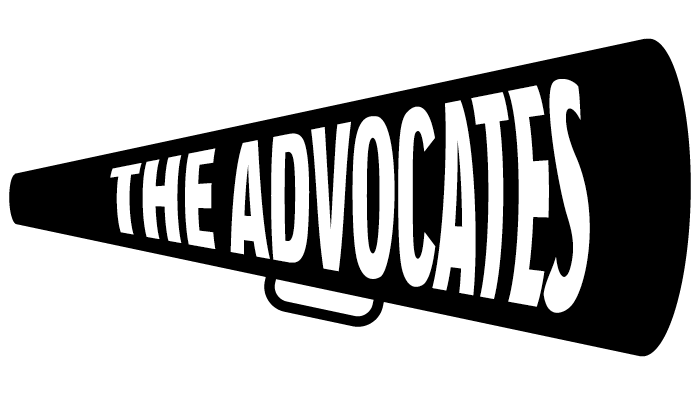
Doctor. Community organizer. Peer counselor. Outdoorsman. These UC Davis alumni have turned their passions into activism, working to make a difference in their work for their varied causes.
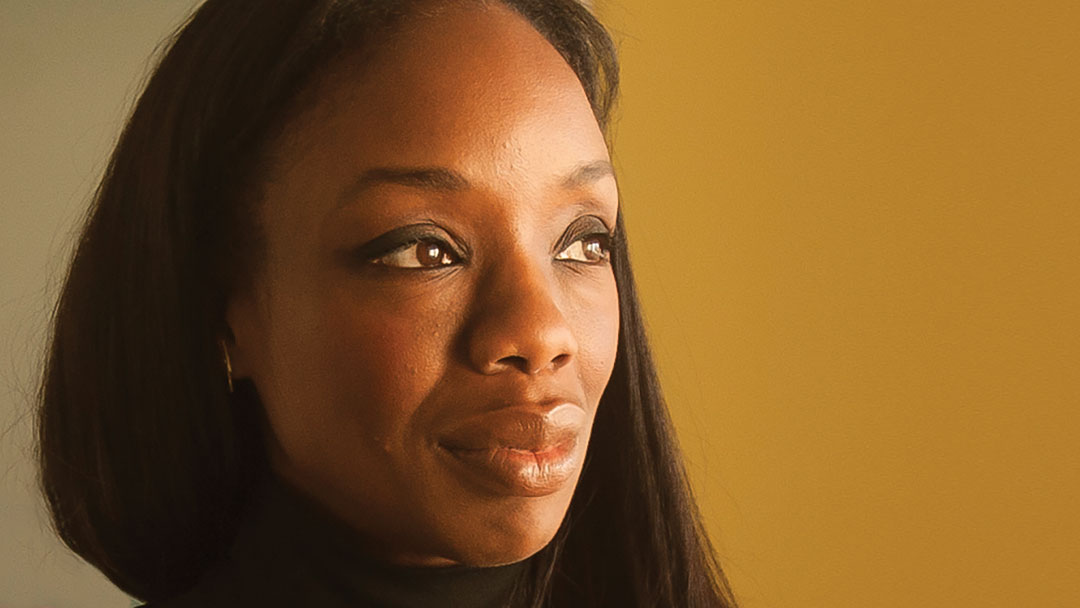
Photo: Gregory Urquiaga/UC Davis
The Children’s Wellness Advocate
Nadine Burke Harris, M.D. ’01
Nadine Burke Harris has dedicated her career to toxic stress and the lifelong effects it can have on our health. She said the issue is the great public health crisis of our time — but it’s a problem we can start to solve.
In her first book, The Deepest Well: Healing the Long-Term Effects of Childhood Adversity (Houghton Mifflin Harcourt), published in January, she details the dangers of adverse childhood experiences, or ACEs, and what we can do about them.
“This is the most fun and exciting part: the information about what we can do about this public health crisis,” she said.
Burke Harris has been spreading this message since discovering the direct link between experiences like neglect, abuse and uncertainty, and long-term chronic health problems like heart disease, cancer and depression, as chronicled in a 1990s study by Kaiser Permanente and the Centers for Disease Control and Prevention.
Burke Harris, a Palo Alto native who also holds a master’s degree in public health from Harvard University, founded the Center for Youth Wellness in San Francisco in 2011. There, young patients are screened for ACEs and get referrals for social services and mental health treatment with goal of improving their mental and physical health. Opening the center built on the career path she had started at UC Davis, where running the student clinic “really engrained in me that my voice mattered and could make a difference in the community.”
She reached a wider audience in 2014 with her popular TEDMED talk — currently viewed online more than 3.5 million times. Writing The Deepest Well was the next step, she said, one that let her illuminate the research that clearly shows a path forward — not just for doctors but for teachers, parents, police forces and every other group that grapples with at-risk kids. Comprehensive screenings, early intervention and connection to both physical and mental health treatment could change the way we treat kids.
Her goal, she said, is for all pediatricians to be screening for ACEs in the next 20 years.
“As a nation, I would love for us to come together and say we are going to cut ACEs in half in one generation. We are going to implement policies and practices in school to help do teacher trainings, to have supportive learning for every doctor in America and the training of every police officer and every judge and early childcare person,” she said. “I want to see a public health revolution along the lines of germ theory. This can really change the fundamental way our society functions.”
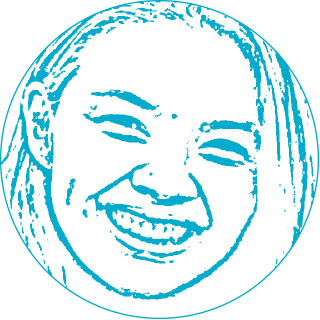
The Mental Health Advocate
Helen Mylod Yee ’17
As a child, Helen Mylod Yee thought she would be a teacher when she grew up. But in her senior year of high school she faced a sudden challenge: social anxiety. The experience ultimately led her to a career in mental health.
“It was really debilitating and scary at first,” she said. “All my life I had been open and outgoing, and it suddenly hit me. I didn’t know what was going on, and I felt very alone.”
She went to therapy, learning ways to cope and understand her condition, and soon found that she enjoyed telling her story to others.
In her third year at UC Davis, she joined the campus chapter of Active Minds, a national mental health organization that endeavors to raise awareness among college students on a peer level. With the group, she regularly helped hold events designed to bring attention to the stress that can accompany the college experience.
Upon graduation, Mylod Yee decided to pursue a career in mental health advocacy, landing a job at Young Minds Advocacy in San Francisco. She is an outreach and engagement associate, working on improving access to mental health services for young people. Her first project with the organization brought her to the UC Davis Mental Health Conference in January.
“It was a very full circle moment for me because I had just graduated, and we presented on college student mental health and barriers to access [of services],” she said.
Though she is just starting out, Mylod Yee said she foresees herself continuing down this career path.
“I wanted to be a teacher, but this turn isn’t really a surprise to me because I’ve always wanted to do something that allows me to connect with others and make a positive impact in others’ lives and in my community,” she said. “This gives me that chance. I also think it’s super important to be doing something that you’re driven by internally. I couldn’t imagine doing something I wasn’t passionate about.”
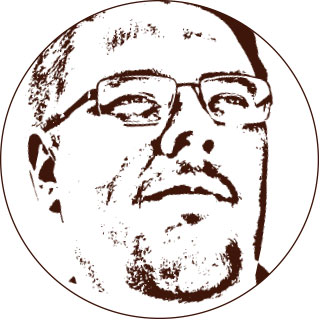
The Community Advocate
Eddie Carmona ’05
For Eddie Carmona, advocacy started at UC Davis.
He grew up in East Los Angeles, living in his grandfather’s house with 17 other members of his family. After high school, he attended Sacramento City College, before transferring to UC Davis, where one of his first classes was an introductory course in Chicana/o studies.
“This big light bulb came on and things started to make sense,” he said. “From there, I started getting involved.”
As a student, he worked with the Cross Cultural Center on campus, empowerment group MeChA de UC Davis and community service organization Hermanos Macehual.
Now, he is the political director at PICO California, a multifaith-based organization that uses civic engagement in communities throughout the state to address racial and economic inequalities that affect marginalized groups.
“I wanted to do something for the people in the communities like where I came from,” he said.
The community focus:
“Growing up, my family was in a bubble of work and school and not understanding how resources are driven, how decisions are being made. For me, specifically, it was so difficult to navigate the community college system when I had come from a low-income community. If I’m having a hard time, how many of our community members don’t understand how these systems work? So my work consists of understanding how the system works, connecting the dots in my own experience and then making sure we do that with community members across the state of California, and the country.”
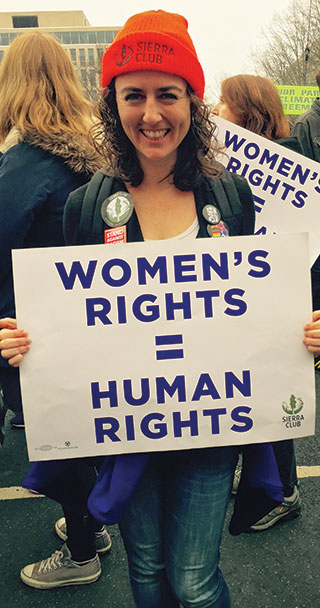
The Women’s Advocate
A. Tianna Scozzaro ’07
The seeds for A. Tianna Scozzaro’s work as director of the Sierra Club’s Gender, Equity & Environment Program were planted as an international relations major. Scozzaro’s role at the nonprofit was created in 2016. That same year, she was elected to the Washington, D.C., Advisory Neighborhood Commission, a nonpartisan body made up of locally elected representatives, where she represents her Adams Morgan neighborhood.
Why does having women run for office matter from an environmental standpoint?
“Women, globally, are disproportionally impacted by toxic exposure, climate change and other environmental challenges. But research [shows that] women are strong advocates for environmental protection, regardless of political party. Having women run [at all levels] benefits our communities and our country and the next generation. I’ve lived in D.C. almost eight years now, and I really love my neighborhood, so when there was an opening on the commission, I threw my hat in the ring. I hold the lowest level of elected office in Washington, D.C., representing 2,000 of my neighbors, but I will say given the political climate it’s never been more meaningful of an opportunity.”
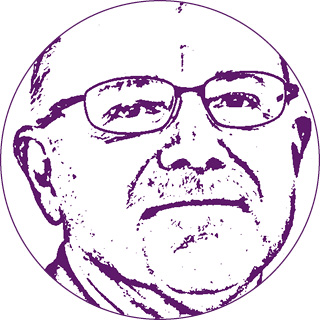
The War Victims Advocate
Jerry Farrell ’81
As the country representative for Catholic Relief Services in South Sudan, Jerry Farrell has the tough job of helping people in a war zone.
South Sudan, which gained independence from North Sudan in 2011, has been ravaged by a civil war since 2013. Fortunately, Farrell, who’s been in the country for a little over two years, has a specialization in working conflict zones.
“I go where I’m needed, and my particular skill set was needed in South Sudan,” Farrell said.
He’s in charge of 700 people who work for Catholic Relief Services in the country. Forty-three are expatriates like himself. He runs large programs aimed at helping those on the margins of starvation. Usually, he said, the communities choose a project — often a road, but potentially a school, dike or waterway. The residents receive food rations in exchange for work. Farrell also is in charge of micro-finance programs and helps local farmers and livestock herders become more productive.
The biggest challenge, he said, is maintaining security amid violence. On a personal level, he said he tries not to get overwhelmed by bad news. “There is a lot of violence in South Sudan, but at a local and regional level our teams make an incredible difference,” Farrell said.
Farrell was a diplomat with the U.S. foreign service from 1981 to 1987. He then worked in the private sector until 2004. He credited UC Davis with making his career possible.
“My five years at UC Davis opened my mind,” Farrell said. “The opportunities to meet people, explore new ideas and see what evidence-based programs looked like was really unmatched. There was nothing like it. It could’ve only happened at UC Davis.”
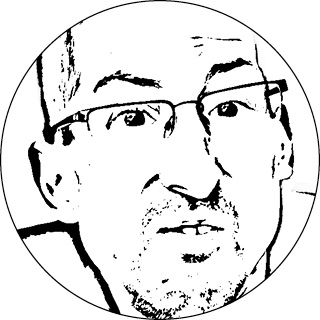
The Inclusion Advocate
Steven Tingus ’85, M.S. ’90
Steven Tingus was born with a rare form of muscular dystrophy. But it hasn’t stopped him from leading a successful career in government and, since 2011, running a consulting firm. Steven J. Tingus Consulting advocates for a greater presence in the entertainment industry for those with disabilities.
How far along has Hollywood come in employing a more diverse workforce over the past few years?
“It’s been a very slow process. In my view, the industry has made good strides in making sure there are more opportunities for people of color. However, for people with disabilities, it’s still disproportionate. Only 0.9 percent of those with disabilities are a part of the industry, whether they’re in front of the camera or behind the camera, and it’s sad because 20 percent of the U.S. population has a disability. So it’s very, very unrepresentative. I think progress in front of the camera will come first. It’s a lot easier to change, based on the outcry of the public, who want to see themselves represented.”
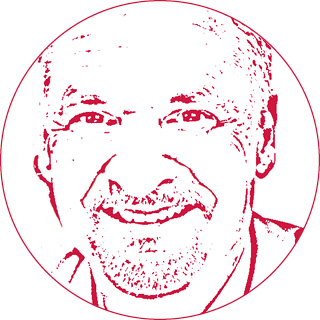
The Homeless Advocate
Mark Loranger ’83
Mark Loranger is doing his part to fight the homelessness crisis.
For years, he worked for IBM in its sales and marketing department. He then launched his own business, which he sold after 13 years at the helm. For the last 10 years, he’s been the CEO of Chrysalis, a Los Angeles-based nonprofit dedicated to helping homeless and low-income people become self-sufficient and find work.
“I really felt that I wanted to do something more meaningful and help people in a deeper way,” he said.
His clients give Loranger’s work meaning. “We’re working on issues that go to the core of someone’s being,” Loranger said. “The dignity and the respect that comes from a job is really important. A large segment of our population has been disconnected from that for so long.”
The typical client:
Omara left home at an early age, fleeing an abusive household. She became a mother while still in her teens, got into trouble with the law and became addicted to drugs. Soon, she landed in prison and lost custody of her kids. When she left prison, she needed a job to reunite with her three children. She went through Chrysalis’s program, and then got placed in a job through Chrysalis’s temporary services program. She soon was hired permanently and has been promoted twice. She’s also started a side business cleaning houses. She’s gotten custody of her oldest daughter and is working on getting custody of her two other children.
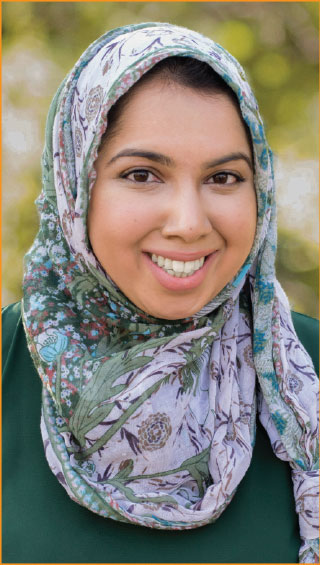
The Muslim Youth Advocate
Areeba Siddiqui ’16
Areeba Siddiqui was still in college when she noticed an issue in the Muslim American community that wasn’t being sufficiently addressed: mental health.
In addition to feeling concern over a series of suicides in the Muslim American community in California, Siddiqui, along with some of her friends, was dealing with personal issues such as increased anxiety. And it seemed they had few places to turn.
In January 2015, Siddiqui and friends launched a crisis hotline geared toward Muslim-American young adults. They call it Amala, Arabic for hope.
“People face a lot of barriers in accessing services,” Siddiqui said. “[We felt] a hotline that caters to Muslim youth with cultural competency would be really helpful.”
The hotline is staffed by 10 volunteers at a time who’ve undergone 40 hours of peer counseling training. People call with issues large and small and are encouraged to talk.
According to Siddiqui, Muslim-American youth may not seek help due to a lack of mental health professionals who understand the issues that impact their community. Also, mental health treatment carries a stigma in her community, she added.
Then there’s the problem of access. Many young people lack transportation options to get to and from appointments with a counselor, especially if they want to keep the appointments private.
“But everyone has access to a phone,” she said.
Going forward, Siddiqui would like Amala to add chat and texting-based counseling. Her organization is also involved in campaigns that raise awareness of and remove stigma from mental health issues.
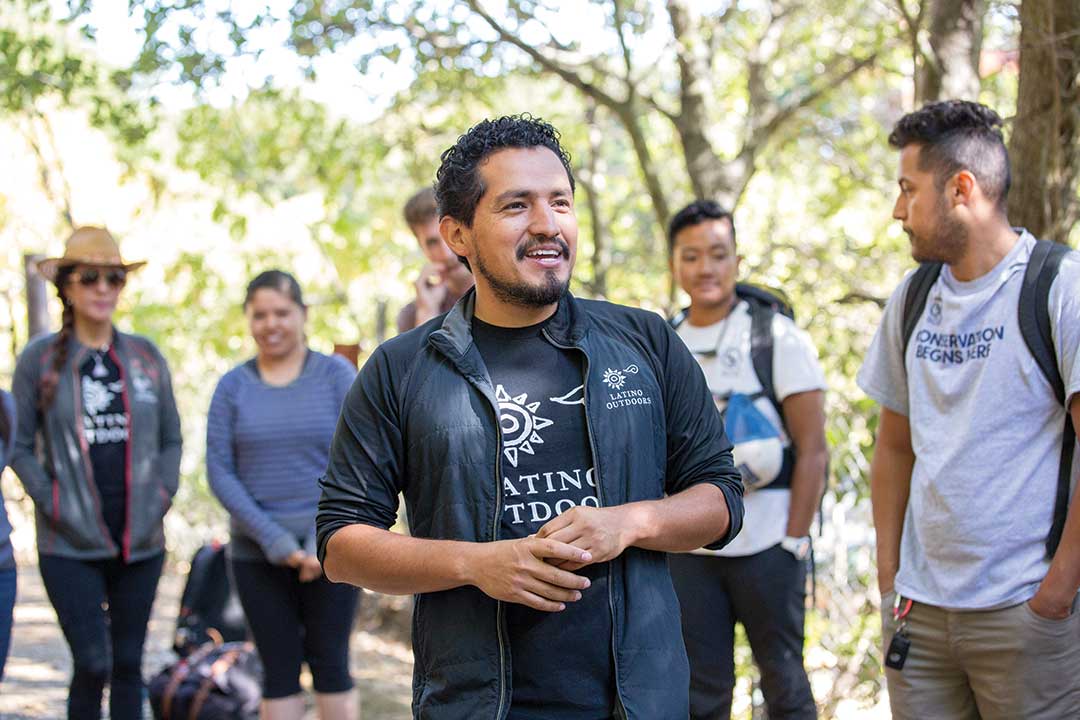
Photo: courtesy
The Latino Access Advocate
José González ’04
José González has always loved the outdoors. In 2013, he took his love for the outside one step further, founding Latino Outdoors, an organization that seeks to get Latinos into nature and engaged in environmental issues. The group now has a nationwide presence, and González has been commended by former President Barack Obama for his engagement in environmental protection.
What first drew you to the cause of getting Latinos outdoors?
JG: My first inspired action came at UC Davis when I applied to work for the California Mini-Corps Program [offering educational assistance to migrant children]. It had an outdoor education program. That [showed] me what this could look like as part of a career.
How did Latino Outdoors start?
JG: Latino Outdoors started really as a call for community. I was looking for others like me, so to speak, and I thought that what was needed was opportunities to meet and convene with others. What ended up developing from that was that other ambicultural leaders, who had some interest or connection to nature and the outdoors, wanted to take others outdoors, too. So that developed into providing outings and outdoor experiences, like day hikes and other programs.
Why have Latinos been underrepresented in outdoor activities and national park use for so long?
JG: The Latino identity is very diverse. For recent arrivals and people who are first generation, it could be that they just don’t know and that there’s a lack of access and resources. But the biggest barrier is a lack of feeling welcome or that we bring value to the space. So the first part is getting past the idea that Latinos aren’t interested, or they’re not outdoors. The reality is that we are. Recent surveys [show] Latinos are overrepresented in the category of people who care for the environment. Similarly, when the outdoor industry looks at its data, we tend to participate the most and spend the most on gear. That’s a validation.
